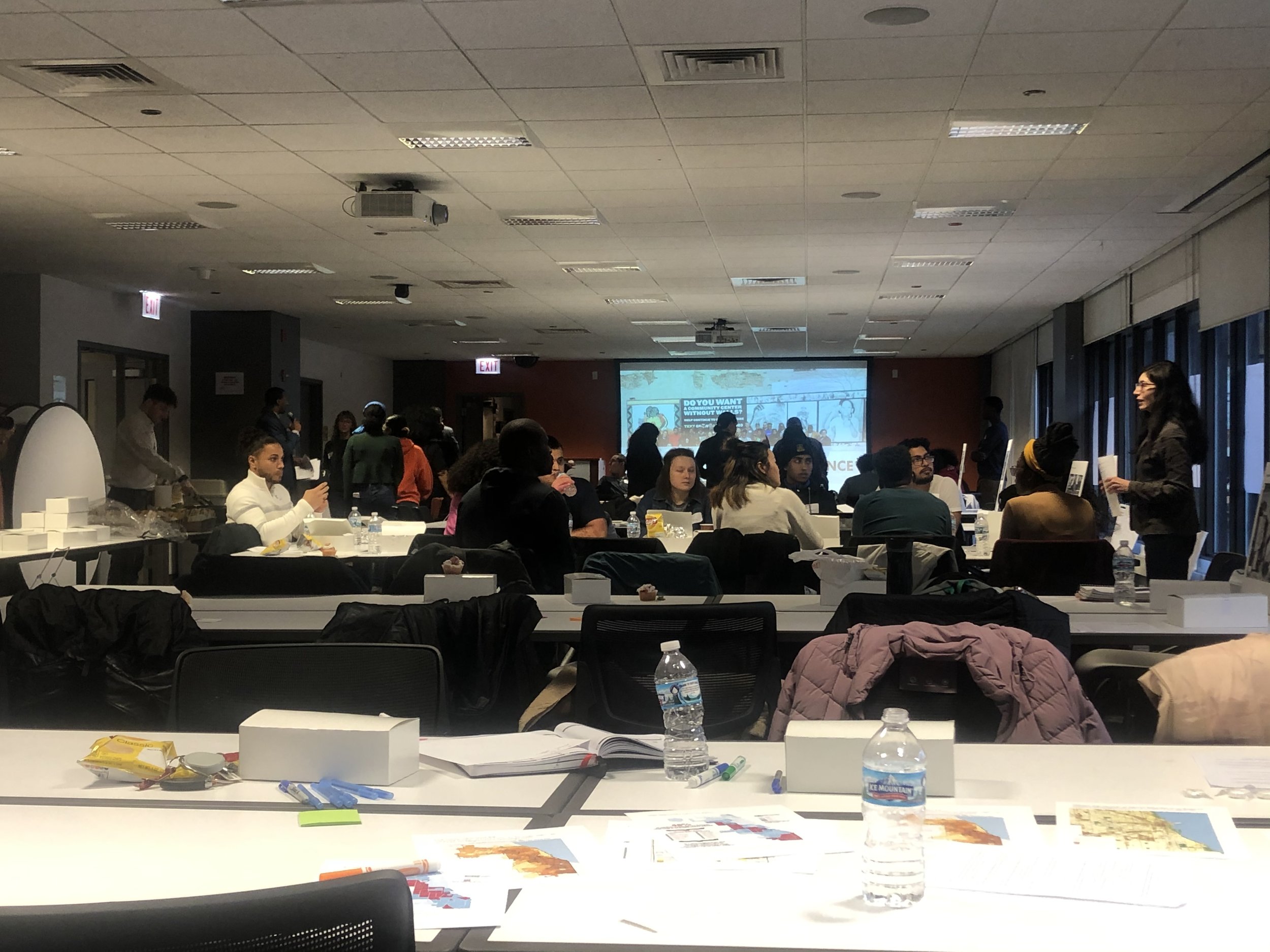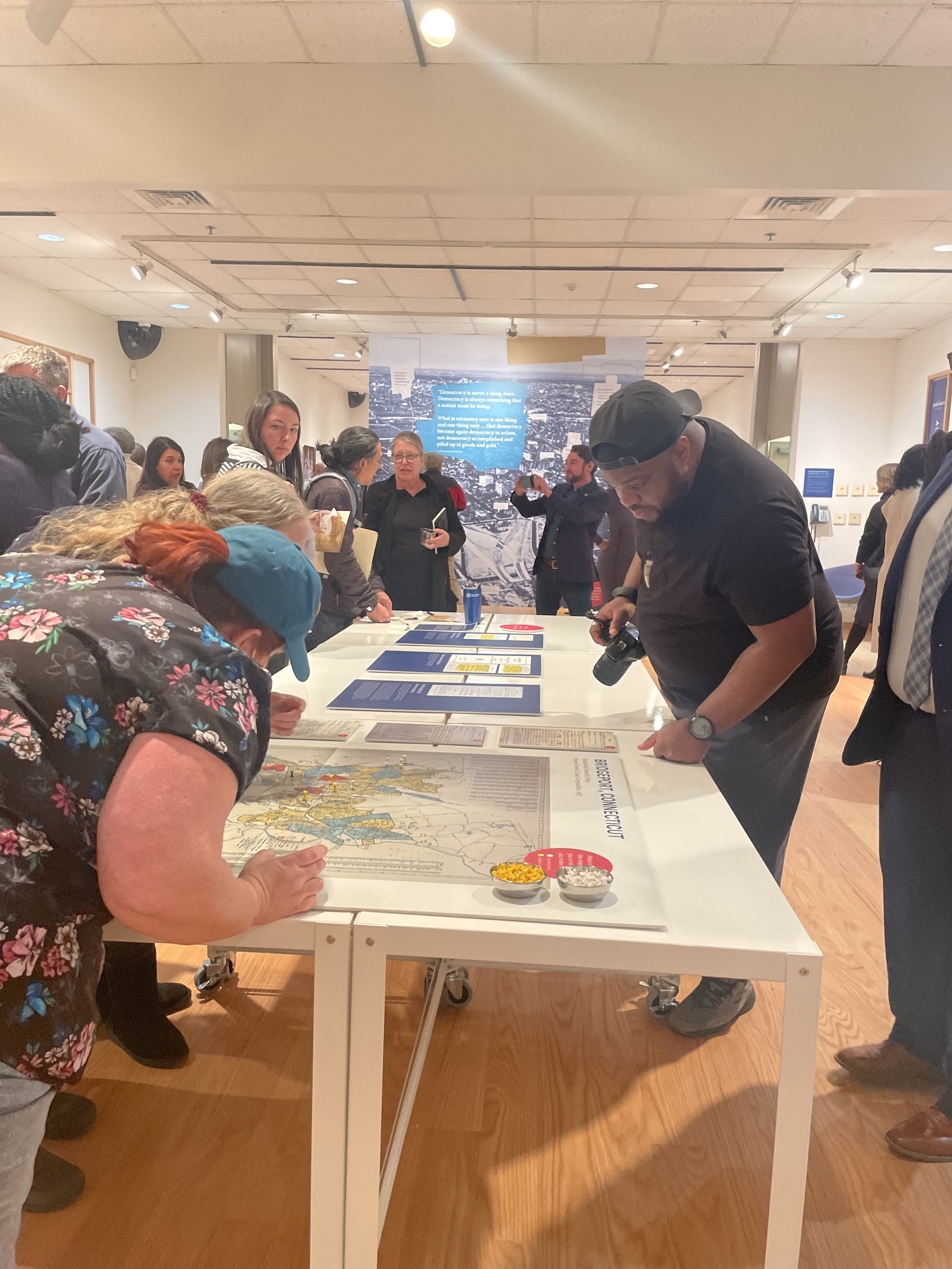curriculum
The 12-course module curriculum is offered on a rotating basis and serves as an entry point into the public studio experience. It grounds participants with the critical understanding and knowledge of systemic conditions, both locally and beyond, necessary to advance meaningful impact. The curriculum can be used as a standalone learning opportunity or for participants engaging in the fellowship program and longer-term projects.
The curriculum investigates the systems and environments we plan, design, and influence that shape our society's conditions and the thinking behind those decisions. Participants research social and spatial dynamics impacting societal challenges like housing, education, income, criminal justice, and health. This coursework exposes how these challenges are rooted in deeper, systemic, and entangled webs of past and present practices, policies, and investments. Participants gain a broader understanding of the lived experiences of the people and how such real-life occurrences erode and undermine a true and inclusive practice of democratic values and principles like equity, justice, and equality. Within this context, participants simultaneously will identify actionable opportunities.
Through group learning, each module covers history, civics, geography, writing, social science, research, and design skills. In the advanced modules, participants will use Participatory Action Research (PAR) methods that involve interviews, mapping, walking the neighborhood, and secondary research. In addition, participants learn the value of design software programs, digital mapping technology and coding to bring this information to a broader audience. Guest lecturers will also complement the course offerings. Upon successful completion, participants will be able to answer the following:
What interconnected past-to-present conditions shape the places where we live or navigate?
Who designs our towns and cities and why?
What are the policies, practices, and investments that made my neighborhood the way it is?
What are examples of systems-level change models driving societal impact?
Contact us to explore opportunities to activate our curriculum within your organization or company.




